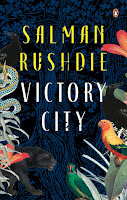
American Wife
By Curtis Sittenfeld
There is not a little voyeurism in the attraction this book holds. A thinly veiled imagining of the life of Laura Bush, one of the more popular First Ladies (always more popular than her husband) in America, American Wife chronicles the road to the White House of a quiet, book-ish librarian from middle America.
Alice Lindgren is an only child, growing up in Wisconsin. She inherits a life-long love of books from her feisty grandmother who shapes her liberal attitude and in many ways leads her on the road to adulthood. And living in a small town where poverty wasn’t a stranger, develops in her an in-built compassion for those less privileged. Alice is definitely not a shoo-in for the wife of a spoiled rich kid with ambitions for the White House without any real abilities.
Much like Laura, Alice is involved in a motor accident as a teenager where a boy she has a crush on is killed. Andrew’s death and her subsequent disastrous mistake leave life-long scars – of guilt, an inability to be truly happy and the need to hide a past. Alice grows up beautiful, goes to college, dates boys and men she does not truly care about – and then meets Charles Blackwell.
Charles, the George Bush stand-in, is the youngest son of a meat packer tycoon. He is bluff, hearty and seriously light-weight. He is ‘enchanted’ by Alice and she in turn inexplicably falls in love with him, his cheer, his ability to make her laugh (“whenever I was with him, my life seemed dense with possibilities, fuller and noisier and far more fun…now I saw the case for larks and mischief”) The physical attraction is not light-weight and the sex feels like having a camera on in the White House bedroom! The Blackwell family and the Maj (Her Majesty is the nickname for the Barbara-like matriarch) are great attempts at portraiture, and Alice soon learns to live with in-laws she has little in common with.
As she moves on to start a life with Charles, Alice is very aware that she is taking a step that might mean living a double life – where her private belief system is constantly at war with her public face - a registered Democrat who publicly endorses a Republican husband for Governor and later the President; her own pro-choice stance at odds with her husband’s rabid anti-abortion one; her ambivalence towards religion contrasting with Charles’ born-again Christianity. She attempts a walk-out once, when his drinking gets the better of him; but she soon returns, knowing she has made a choice she wants to live with.
The best parts of the book are the first three – her childhood in Riley, life as a single working woman and her married life. There is a realness to the character that makes you feel completely empathetic towards the young mild Alice, struggling with loss (possibly the loss of the love of her life!) as a teenager, carrying a quiet confidence about her as a young woman working at a job she loves and meeting men she knows she will never love, and making a choice as a wife – a choice that meant she would sacrifice private beliefs towards building a relationship with a man she loved. The least interesting and convincing is the part in the White House. Her ruminations after a war that has gone horribly wrong, her regret that maybe she should have spoken out earlier, her token actions (not voting for her husband, talking to anti-war demonstrators) – all seem forced and uncharacteristic of a woman who had till the other day, made peace with her choices. Her justifications come across as defensive and completely unnecessary - “All I did is marry him. You are the ones who gave him power”. The White House chapter also makes the Laura Bush shadow seem most vivid, taking away from what could be authentic fiction (without the feeling of being a peeping Tom).
But American Wife is a riveting read. The story at its heart is warming and tangible and real. It is very easy to fall in love with Alice Blackwell née Lindgren.




3 comments:
Agree with your review esp.your take on the last part.
I think Sittenfeld's strength is in projecting her own experience in a literary format- I think she was tripped up by the fact that she has not been married long enough. My own observation (-ought to be experience too, but would not like to think so-)is that views often converge in a long marriage. A pro-choice supporter may begin to "see" the "humanity" and the "idealism" of a pro-life spouse, a strongly religious person may turn more "rational." It is this growth in an individual that is missing.
The other bit I objected to was introducing the lesbian grandmom (unless CS knows something we don't about the family). I thought it was a patronising construct- that a product of a lower middle class family in the midwest could never have liberal views otherwise.
K
PS - Did not notice that Charlie Blackwell was rabidly anti abortion!
Forgot top add- very well written indeed...
Hey thanks K. Yeah..don't think CB was personally rabidly anti-abortion...got that wrong. But his political convictions do make him pro-life.
Agree that the length of the marriage does mitigate some of the differences in views. Though I also believe that there are some things that are core enough to create disruption if there are differing points of view. Personally to me, conservative vs liberal is core enough.
Post a Comment